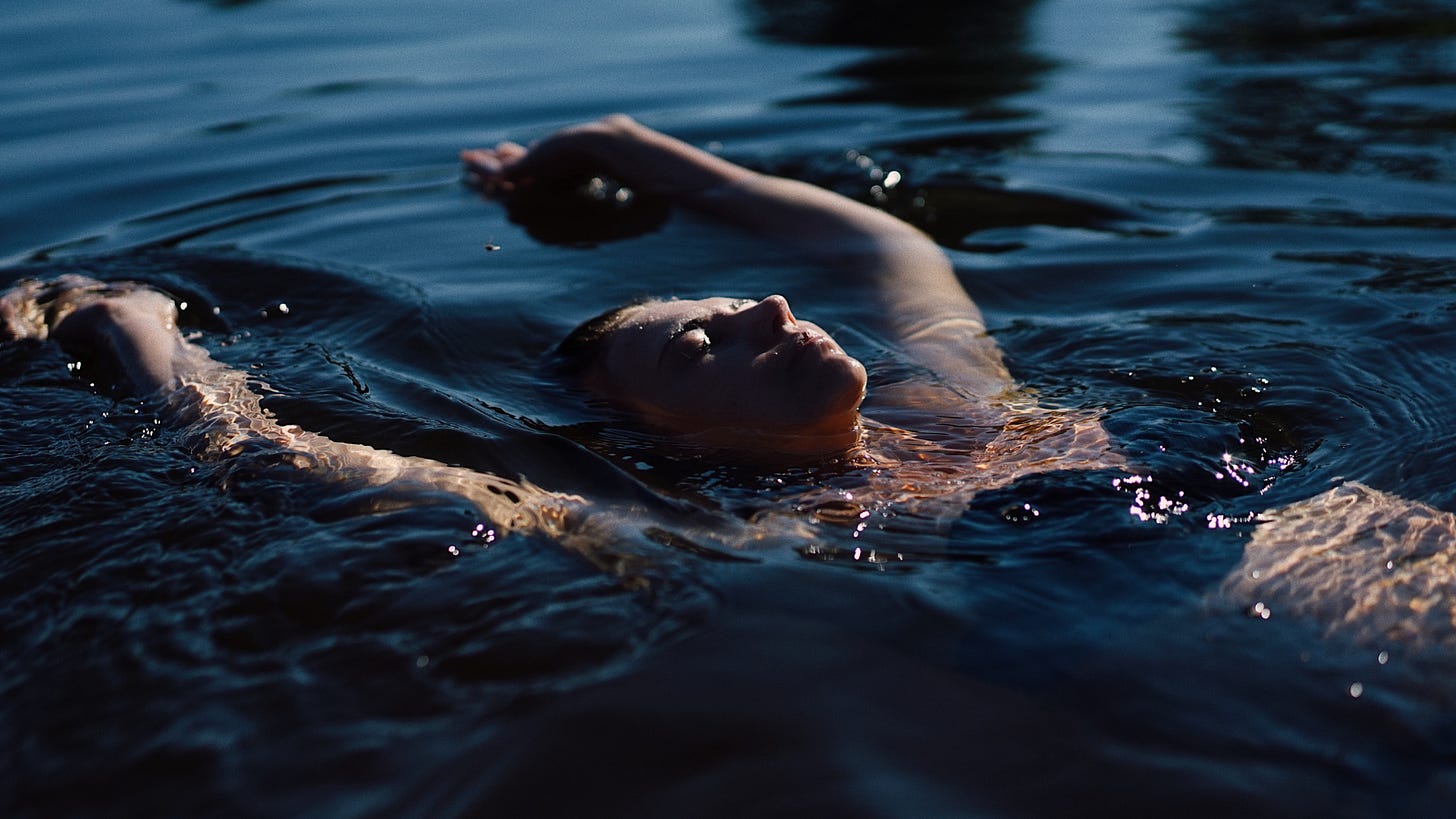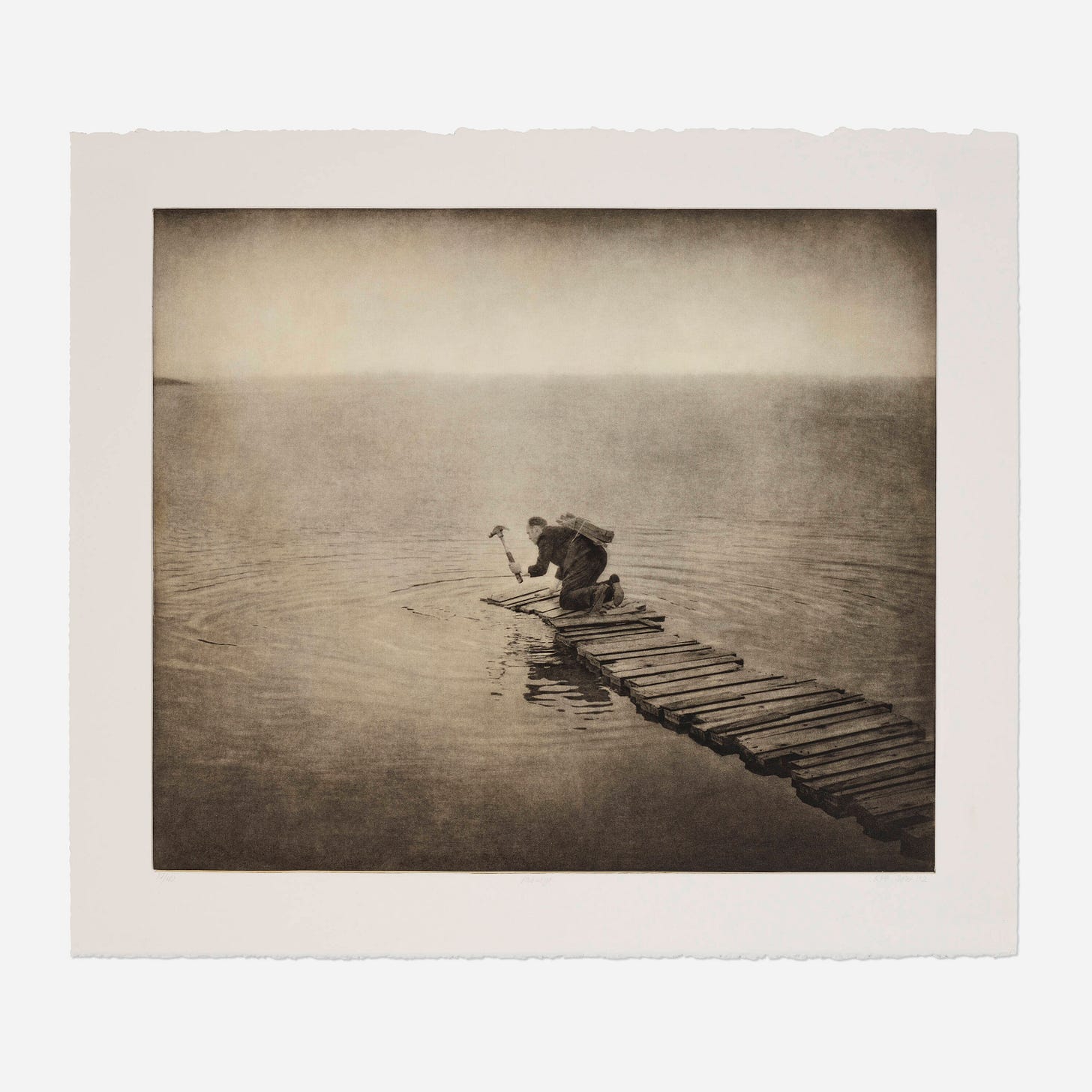For the overthinker, surrender sounds like defeat. It feels like giving up. Like abandoning responsibility. Like inviting chaos.
After all, we've spent years building elaborate systems of control. Detailed contingency plans. Backup plans for our backup plans. We carry them everywhere - an enormous mental suitcase filled with "just in case" scenarios.
It's exhausting.
The Cost of Control
If you tend to get stuck in the overthinking mode, here’s something worth considering: every ounce of mental energy spent on maintaining the illusion of control is energy unavailable for actual creation. Every moment spent spinning scenarios is a moment we're not fully present. Every bit of bandwidth used for "what if" is bandwidth we can't use for "what is."
We think we're being responsible. Prepared. Smart. But we're actually limiting ourselves in profound ways.
When we're caught in the grip of control, our bodies stay in subtle fight-or-flight. Our vision narrows. Literally. Our breathing shortens. Our muscles tense. Our creativity contracts. We see fewer options because biologically, we're prepared for threat rather than possibility.
The Paradox of Surrender
Here's what makes surrender so challenging: it requires trusting in something that overthinking has taught us to doubt - our natural capacity to respond to life as it unfolds. It asks us to trust that we might be more capable without our elaborate preparation than with it. That we might see more clearly without our careful planning than with it. That we might actually be safer without our protective overthinking than with it.
The hardest part is that is asks us to trust in ourselves - and we don’t.
Letting Go
When we finally release our death grip on control, something remarkable happens: Our vision expands, our breathing deepens; muscles relax; creativity awakens. We begin to move through life with agility rather than anxiety.
Antifragile
The overthinker's elaborate systems of control make us fragile.
We become dependent on our preparations. Thrown by the unexpected. Paralyzed by the unplanned. Rigid. Easy to break.
But as we learn to surrender, we become antifragile.
We develop the ability to not just survive uncertainty, but to thrive in it. We learn to use challenges as fuel for growth rather than triggers for anxiety. We discover that our best responses often emerge in the moment, not in our advance planning.
We shift from preparing for a tsunami that may never come to playfully jumping in the waves.
Self-Trust
Each time we surrender control and survive - even thrive - we build something more valuable than any contingency plan: Self-trust.
We begin to trust our capacity to handle whatever comes.
We begin to trust our ability to think clearly in the moment.
We begin to trust our natural resilience and creativity.
Presence
Surrender isn't passive. It's an active choice to stop fighting reality and start dancing with it. It's a decision to trade the heavy armor of overthinking for the light feet of presence. A commitment to engage with life as it is rather than as we think it should be.
The best thing is that the energy we free up when we stop maintaining the illusion of control becomes available for actual creation. For genuine connection, a spontaneous insight. For inspired action.
Surrender doesn't mean we stop thinking. It means we stop overthinking.
It means we stop trying to control what we can't control, stop preparing for every possibility and start trusting our ability to handle whatever comes.
We learn to travel light. And that way we can go much further.
We trade our enormous suitcase of "just in case" for a light day pack of "just what's needed."And in doing so, we discover something surprising: the less we carry, the more we're capable of.
The less we control, the more we create. The less we overthink, the more clearly we think.
This is the art of surrender - not a white flag of defeat, but a deliberate release of what weighs us down. It’s a choice to trade the illusion of control for the reality of capability. A decision to trust that we might be more powerful without our protective armor than within it. And in that surrender, we find what we've been seeking all along: The freedom to create. The ability to respond. The power to truly live.
“Living” in The Trenches
Sometimes we keep fighting wars that ended long ago.
Past challenges teach us to seek safety above all else. To stay in the trenches. To keep our heads down. These protective patterns made sense once. But now they've outlived their purpose. The war is over, but we're still rationing our joy. Still scanning for threats. Still treating life as a battlefield rather than a playground.
It's a special kind of tragedy - sacrificing today's possibilities to avoid yesterday's dangers.
We focus so intently on what we might lose that we become blind to what we're already losing: opportunities, connections, joy, life itself.
The trenches feel safe. But they're no place to live.
Overthinking Tax
Our minds are excellent record-keepers of pain. Poor accountants of possibility.
We carefully track every past hurt, every disappointment, every loss. But we rarely balance the books with potential gains, possible joys, unexpected discoveries.
When safety becomes our default setting, we don't just avoid danger. We avoid life.
Life keeps inviting us to come out and play. To leave the trenches and step into open ground. But it’s easy to ignore it if all you do is focus on what might come and get you.
The saddest safety is the kind that protects us from everything - including what we most deeply want.
Work of Robert and Shana ParkeHarrison
Too busy thinking and planning to actually do stuff and live life? I get it. Think of me as your spare prefrontal cortex – someone who can help you navigate the complexity of creative execution while staying true to your vision. Let's turn your ideas into reality, one step at a time. DM to chat.








So much wisdom here:
"This is the art of surrender - not a white flag of defeat, but a deliberate release of what weighs us down. It’s a choice to trade the illusion of control for the reality of capability. A decision to trust that we might be more powerful without our protective armor than within it. And in that surrender, we find what we've been seeking all along: The freedom to create. The ability to respond. The power to truly live."